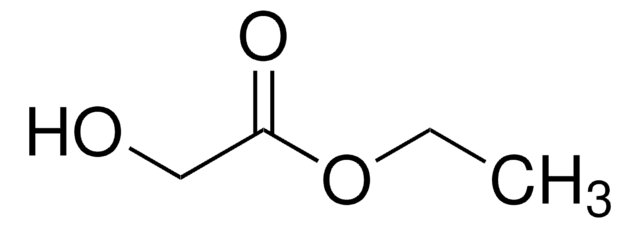12-1300
Glycolic acid solution
CP, 70% in H2O
Sinónimos:
Hydroxyacetic acid
About This Item
Productos recomendados
grade
CP
form
liquid
availability
available only in Japan
concentration
70% in H2O
SMILES string
OCC(O)=O
InChI
1S/C2H4O3/c3-1-2(4)5/h3H,1H2,(H,4,5)
InChI key
AEMRFAOFKBGASW-UHFFFAOYSA-N
¿Está buscando productos similares? Visita Guía de comparación de productos
signalword
Danger
hcodes
Hazard Classifications
Skin Corr. 1B
Storage Class
8A - Combustible corrosive hazardous materials
wgk_germany
WGK 3
flash_point_f
Not applicable
flash_point_c
Not applicable
Certificados de análisis (COA)
Busque Certificados de análisis (COA) introduciendo el número de lote del producto. Los números de lote se encuentran en la etiqueta del producto después de las palabras «Lot» o «Batch»
¿Ya tiene este producto?
Encuentre la documentación para los productos que ha comprado recientemente en la Biblioteca de documentos.
Nuestro equipo de científicos tiene experiencia en todas las áreas de investigación: Ciencias de la vida, Ciencia de los materiales, Síntesis química, Cromatografía, Analítica y muchas otras.
Póngase en contacto con el Servicio técnico





